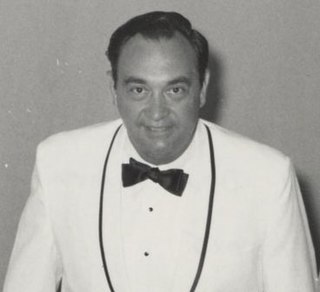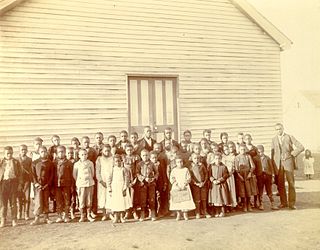
Frankfort is the capital city of the U.S. state of Kentucky and the seat of Franklin County. It is a home rule-class city. The population was 28,602 at the 2020 United States census. Located along the Kentucky River, Frankfort is the principal city of the Frankfort, Kentucky Micropolitan Statistical Area, which includes all of Franklin and Anderson counties. It is the 4th least populous state capital in the United States, and the 13th most populous city in Kentucky.

Louie Broady Nunn was an American politician who served as the 52nd governor of Kentucky. Elected in 1967, he was the only Republican to hold the office between the end of Simeon Willis's term in 1947 and the election of Ernie Fletcher in 2003.
Stephen Roberts Nunn is an American convicted murderer and former politician who served as the Deputy Secretary of Health and Family Services for the Commonwealth of Kentucky.
Pam Miller served as the mayor of Lexington, Kentucky from 1993 to 2003. On January 3, 1993, she became Lexington's first woman mayor. She was first elected to the Urban County Council in 1973 and was the first woman elected to public office in the city. She served from 1974 to 1977 and again from 1980 to 1993. She served as vice-mayor before becoming mayor after the resignation of Scotty Baesler, who was elected to the United States Congress in 1992. She was elected mayor in 1994 and again in 1998, though she chose not to run for a third full term in 2002.
The Louie B. Nunn Center for Oral History, also known as The Nunn Center, the University of Kentucky, is one of the premier oral history centers in the world, known for a comprehensive oral history archival collection, ongoing interviewing projects, as well as being an innovator with regard to enhancing access to archived oral history interviews. The Nunn Center maintains a collection of over 14,000 oral history interviews made up of over 600 projects with an emphasis on: 20th century history; Appalachia; agriculture; African American history; the history of education; immigration; politics, and public policy; LGBTQ+; athletics; the arts; Kentucky writers; quilters and quilting; gender; diversity; the Civil Rights Movement; veterans' experiences; the history of the University of Kentucky; the Peace Corps; the history of healthcare; and industries including the coal, equine, and bourbon industries. Although the Nunn Center began focusing on Kentucky history exclusively, it has expanded to also document oral history projects with national and international significance. The Nunn Center for Oral History is part of the University of Kentucky Libraries Special Collections Research Center.
Abby Lindsey Marlatt, Ph.D. was a social justice activist and a teacher scholar committed to civic engagement. While a professor at the University of Kentucky (UK) in Lexington, Kentucky, she became the center of controversy at UK in the mid-1960s over anti-war protests and whether the university could censor her in her role as a public intellectual. She was honored for her work by many academic, professional and community organizations including the National Conference for Community and Justice, and she was inducted into the Kentucky Civil Rights Hall of Fame in 2001.
Joyce Hamilton Berry, is an American clinical psychologist with her own practice in the Washington D.C. area. She grew up during the time of segregation, attended graduate school during the height of the Civil Rights Movement, and became the first female African-American to earn a Ph.D. from the University of Kentucky in 1970. She was married to David Berry, also from Kentucky.
NAACP in Kentucky is very active with branches all over the state, largest being in Louisville and Lexington. The Kentucky State Conference of NAACP continues today to fight against injustices and for the equality of all people.

Audrey Louise Grevious became one of the central leaders in the local civil rights movement in Lexington and the Commonwealth of Kentucky.
Lucille Caudill Little was an American patron of the arts and philanthropist who served as president of the W. Paul and Lucille Caudill Little Foundation in Lexington, Kentucky.
Douglas A. Boyd is an oral historian, archivist, folklorist, musician, and author and currently directs the Louie B. Nunn Center for Oral History at the University of Kentucky. He graduated from Denison University with a B.A. in History and graduated from Indiana University Bloomington with an M.A. and Ph.D. in folklore. He is known for his work regarding oral history and digital technologies including his work designing and managing the OHMS system. Recently served as executive producer of the documentary Kentucky Bourbon Tales: Distilling the Family Spirit, as well as the award-winning documentary Quest for the Perfect Bourbon: Voices of Buffalo Trace Distillery and is active in the Oral History Association, Society for American Archivists, and the American Folklore Society. Formerly, Boyd managed the digital program for the University of Alabama Libraries, directed the Kentucky Oral History Commission, and served as the senior archivist for the folklife and oral history collections at the Kentucky Historical Society. He is co-editor of Oral History and Digital Humanities: Voice, Access, and Engagement with Mary A. Larson. Boyd is also author of Crawfish Bottom: Recovering a Lost Kentucky Community which was published by University Press of Kentucky and was featured on C-Span's Book TV. He also regularly appears on the radio show Saving Stories. He is also the producer/host of The Wisdom Project Podcast.
The following is a timeline of the history of Lexington, Kentucky, United States.
Viola Denisa Rowe Gross from Danville, Kentucky, was a teacher, businesswoman, clubwoman and author. She served on many local, state and national organizations and associations in support of African American civil rights and human rights in general. She and her husband Dr. Rodney Gross Jr. were partners at Gross Veterinary Clinic, which opened in Grayson, Kentucky in 1962. They were the first African-Americans to hold professional degrees in Carter County, Kentucky.
Helen Fisher Frye, educator and active churchwoman, was a local leader for civil rights in her hometown of Danville, Kentucky, serving as the president of the Danville chapter of the NAACP. She was the first African American to enroll at Centre College and the first African American woman to receive a Master of Arts in Library Science from the University of Kentucky in 1960.

The Mayfield Ten were ten African-American students in Graves County, Kentucky who chose to integrate the white high school in Mayfield, Kentucky in 1956.
The Oral History Metadata Synchronizer (OHMS) is a web application designed to enhance online access to oral history interviews. OHMS was originally designed and created by the Louie B. Nunn Center for Oral History, University of Kentucky Libraries in 2008 for deployment through the Kentucky Digital Library. In 2011, the Louie B. Nunn Center for Oral History received a grant from the Institute for Museum and Library Services to make the system open source and free to use with interoperability and sustainability as the primary goals. According to the Nunn Center, "The primary purpose for OHMS is to empower users to more effectively and efficiently discover information in an oral history interview online by connecting the user from a search result to the corresponding moment in an interview."

Cadentown School in Lexington, Kentucky was a primary public school for black children in the segregated Fayette County Public Schools from about 1879 to 1922. The building that originally housed Cadentown School, located at 705 Caden Lane, is no longer extant. However, the Rosenwald Fund School is listed on the National Register of Historic Places in Fayette County.
Carl R. Hines Sr. was a former American politician in the state of Kentucky and the first African-American to have served Louisville District 43. He served in the Kentucky House of Representatives from 1978 to 1987, as a Democrat. He attended the University of Louisville and earned a Bachelor of Science degree, and also attended Law School there. He was a real estate agent. Hines married Teresa Churchill and had four children.
E. Belle Mitchell Jackson was an American educator, activist, small business owner, and abolitionist from Danville, Kentucky. Mitchell was one of the founders of the Colored Orphans Industrial Home in Lexington, Kentucky.

Josephine Avalona Abercrombie was an American horsewoman, businesswoman, boxing promoter, philanthropist, and founder of The Lexington School in Lexington, Kentucky.







